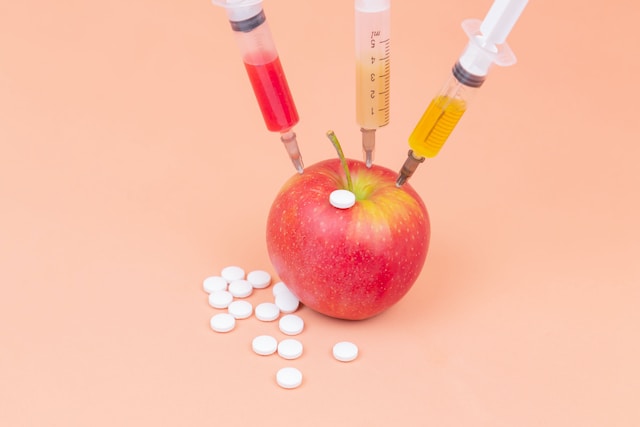How to Fulfill FDA Requirements? A Comprehensive Guide

As a food manufacturer or importer, fulfilling FDA requirements is essential for following all the necessary regulations and maintaining the highest product quality standards. With increasing complexities in how products must be manufactured, labeled, and distributed to consumers, understanding all applicable policies can seem overwhelming. Fortunately, this guide provides a comprehensive overview of everything you need to know about FDA compliance so you can easily stay on top of your company’s obligations.
Understand basic FDA requirements for food businesses
The food business is a huge industry and is one that must comply with the regulations set by the FDA. It is essential that those in the industry understand the basic requirements to ensure the food produced is safe for public consumption. There are specific steps that must be taken before selling any type of food product. These steps include registering the facility, following good manufacturing practices, and adhering to proper labeling requirements. Additionally, adequate record-keeping is necessary to ensure compliance. Failure to comply with FDA regulations can result in severe penalties, including recall of products or even legal action. Understanding and adhering to the basic FDA requirements is vital for any successful food business.
Learn how to register with the FDA and renew your registration annually
If you want to produce, distribute or sell any kind of food or beverage, you must be registered with the Food and Drug Administration (FDA). This government agency is responsible for ensuring that all products comply with strict safety and quality standards. While the registration process may seem daunting at first, it is actually quite straightforward. To get started, you must create an account on the FDA’s online registration system and submit basic information about your business. Once you have been approved, you must renew your registration annually to remain in good standing. This ensures your products are always up-to-date with the latest regulations and guidelines. While it may seem like a hassle, registering your business with the FDA is an essential step toward establishing credibility and trust with your customers.
Master good manufacturing practices (GMPs) and hazard analysis critical control points (HACCP)
Mastering good manufacturing practices (GMPs) and hazard analysis critical control points (HACCP) is critical for anyone involved in the food industry. GMPs ensure that food products are consistently produced and controlled in a safe and hygienic manner, while HACCP identifies and controls hazards before they pose a threat to consumers. By mastering these practices, food industry professionals can mitigate risks and provide safe and high-quality products to their customers. Not only is this important for the well-being of consumers, but it also helps to uphold the reputation and credibility of the industry as a whole. Therefore, investing time and effort into learning and implementing GMPs and HACCP is essential for anyone who cares about the safety and quality of the food we consume.
Quality Management System (QMS) and FDA Requirements
With the continually changing FDA regulations, staying on top of all their intricacies can seem like an overwhelming job. It is important to know how QMS helps with FDA requirements. Not only does a QMS help ensure that your processes are compliant with FDA regulations, but it also helps to streamline your business operations in a way that promotes efficiency and productivity. By providing a structured framework for managing your compliance efforts, a QMS can help you identify areas of improvement, track your progress toward regulatory compliance, and ultimately mitigate the risk of non-compliance. Whether you’re a large pharmaceutical company or a small medical device start-up, implementing an effective QMS can make all the difference when it comes to meeting FDA requirements with ease.
Become familiar with labeling and labeling requirements
When it comes to labeling and labeling requirements, the FDA has a lot to say. If you’re a business or individual who deals with consumer products, it’s essential to become familiar with what the FDA requires of you. Not only can non-compliance lead to regulatory action, but it can also harm consumer safety and impact your bottom line. Learning the nuances of product labeling may appear intimidating, but it is a critical element in launching your product successfully. From accurately listing ingredients to including pertinent warnings and allergen information, there’s a lot to consider. But with careful attention to detail and a willingness to learn, you can ensure that your product meets all necessary requirements and that you’re keeping both the FDA and your customers happy.
Understand the importance of keeping accurate records
Keeping accurate records is a critical aspect of any business, and no industry understands this better than the FDA. As the regulatory body tasked with ensuring the safety and efficacy of medical products and food, the FDA relies heavily on the accuracy of records kept by businesses operating within their purview. Accurate records help the FDA to perform its duties more effectively. They also benefit businesses by providing a clear and organized record of their operations. Inaccurate or incomplete records can have serious consequences, from failed inspections to costly recalls. Therefore, it is imperative that businesses take record-keeping seriously, investing time and resources into developing systems that are accurate, reliable, and easily accessible. By doing so, businesses can not only ensure compliance with FDA regulations but also increase their own efficiency and reduce the risk of costly mistakes.

Develop a plan for preventing, identifying, and responding to food safety concerns
Ensuring food safety is a crucial aspect of any food-related business. A well-thought-out plan for preventing, identifying, and responding to food safety concerns is essential to maintain customer trust and safety. Preventative measures, such as proper storage and handling of food, regular facility inspections, and staff training, play a vital role in minimizing food safety risks. In the event of a food safety concern, swift action must be taken to identify the source of the issue and mitigate any potential harm. This includes conducting thorough investigations and implementing corrective actions, as well as communicating openly and transparently with customers and relevant authorities. By developing a comprehensive plan, businesses can prioritize food safety and protect their customers while also safeguarding their reputation in the industry.
From understanding the basic FDA requirements to building a plan for preventing and responding to food safety issues, it is clear that food businesses must take the steps needed to ensure their operations meet all health standards. While the process may be complicated at times, ultimately developing an understanding of these regulations is essential for the well-being and success of any food business. Taking some time now to educate yourself on FDA guidelines can save you time and money while also keeping your customers safe in the long run. With dedication and determination, you can create a thriving business that puts safety first every step of the way.





